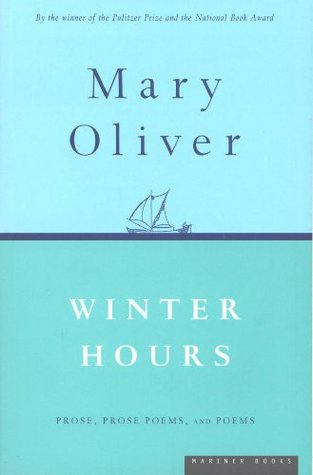More on this book
Community
Kindle Notes & Highlights
YEARS AGO I set three “rules” for myself. Every poem I write, I said, must have a genuine body, it must have sincere energy, and it must have a spiritual purpose.
Then, once the “actual” is in place (in words), begin to address the reason for taking the reader’s good and valuable time—invite the reader to want to do something beyond merely receiving beauty, and to configure in his or her own mind what that might be.
The poem in which the reader does not feel himself or herself a participant is a lecture, listened to from an uncomfortable chair, in a stuffy room, inside a building.
four marks of distinction that are part of a mystical experience. The first of these is that such an experience “defies expression, that no adequate report of its contents can be given in words.”*
the goal of creative work is ever approachable yet unattainable.
Clearly his idea of paradise was here—this hour and this place.
mystical states ”are illuminations, revelations . . . and as a rule they carry with them a curious sense of authority for after time“;
such a state ”cannot be sustained for long“; and that the mystic feels ”as if his own will were in abeyance, and indeed sometimes as if he were grasped and held by a superior power.”
His message was clear from the first and never changed: that a better, richer life is available to us, and with all his force he advocated it both for the good of each individual soul and for the good of the universe.
That his methods are endlessly suggestive rather than demonstrative, and that their main attempt was to move the reader toward response rather than reflection, is perhaps another clue to the origin of Whitman’s power and purpose, and to the weight of the task.
Whitman claims for his work the physical landscape and spiritual territory of America; in so doing he turns, like Emerson, from the traditions of Europe.
we are built of light, and God is within us.
Morning, for me, is the time of best work. My conscious thought sings like a bird in a cage, but the rest of me is singing too, like a bird in the wind. Perhaps something is still strong in us in the morning, the part that is untamable, that dreams willfully and crazily, that knows reason is no more than an island within us.
Now I think there is only one subject worth my attention and that is the recognition of the spiritual side of the world and, within this recognition, the condition of my own spiritual state. I am not talking about having faith necessarily, although one hopes to. What I mean by spirituality is not theology, but attitude. Such interest nourishes me beyond the finest compendium of facts. In my mind now, in any comparison of demonstrated truths and unproven but vivid intuitions, the truths lose.
Even the most solitudinous of us is communal by habit, and indeed by commitment to the bravest of our dreams, which is to make a moral world. The whirlwind of human behavior is not to be set aside.
“Put yourself in the way of grace,”
This is the lesson of age—events pass, things change, trauma fades, good fortune rises, fades, rises again but different.
And if you think that any day the secret of light might come, would you not keep the house of your mind ready? Would you not cleanse your study of all that is cheap, or trivial? Would you not live in continual hope, and pleasure, and excitement?
American Primitive, won the Pulitzer Prize for Poetry in 1984.


